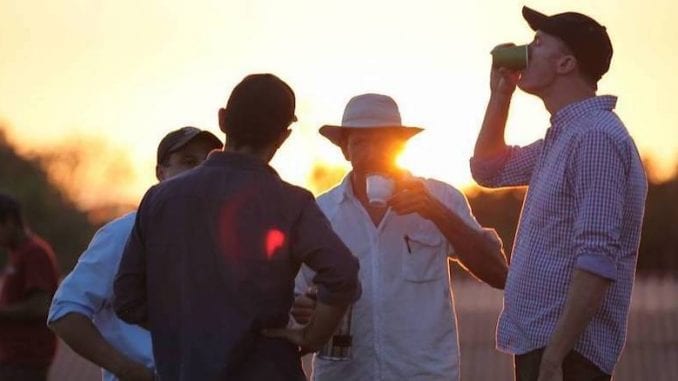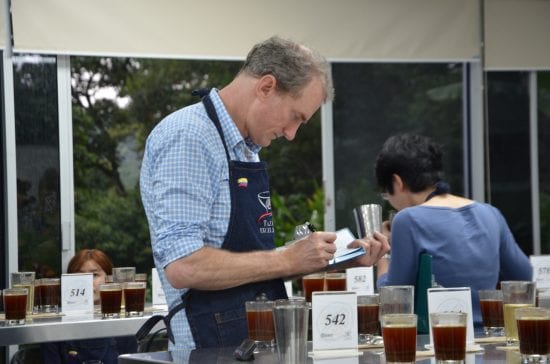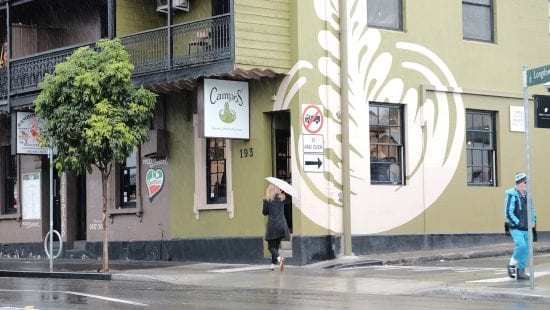
We get to know the founder of Campos Coffee, the Australia-based roaster that has expanded to the United States.
BY CHRIS RYAN
BARISTA MAGAZINE ONLINE
Photos courtesy of Campos Coffee
In 1997, Will Young had a cup of coffee that changed his life. To be specific, it was a flat white, and it took him from loving only the ambiance of cafés to seeing the potential in its product. Will followed that love to eventually launch Campos Coffee, an early entrant into Australia’s specialty-coffee scene, which has grown to seven flagship cafés across Australia, with roasteries in Sydney, Melbourne, and Brisbane. Four years ago, Campos leveraged Australians’ love of Utah—with all its natural beauty—to launch its U.S. operation, which currently has two locations in the Beehive State (in Salt Lake City and Park City).

Along the way, Will has worked to strengthen coffee communities, both as a longtime Cup of Excellence judge and former chair of the Alliance for Coffee Excellence Board of Directors, and by orchestrating projects in the coffee-growing areas where Campos operates. The company’s mission to cultivate good has also extended to supporting charitable organizations around the world. In the first section of this two-part interview, we talk to Will about how he entered the coffee world, developed Campos’ guiding principles, and much more.
Chris Ryan: Can you tell us a bit about your background? Where did you grow up, and what did you aspire to do professionally?
Will Young: I grew up in Bermuda, a tropical island complete with pink beaches, crystal-clean water, reggae, and very bad coffee. Throughout the ’80s and ’90s it was all hospitality, so I’ve been marinating in the service industry from a very young age.
My summers were spent working for a beach resort during the day and bars/restaurants at night. I initially planned to enter the hotel and travel business because there was something about creating a space where people felt welcome and cared for which captivated me.
Without thinking much about what I would need for a career in hospitality, I studied Political Science and Environmental Science at university. My thought process was that with my long work experience in the hospitality sector, I could study something else that I enjoyed because my experience was enough to get me in on the ground floor of any service organisation.

How did you start working in the coffee world? Campos was a specialty-coffee pioneer in Australia—why did you decide to start it, and why did you feel it would be successful?
I arrived in Australia as a surfing backpacker in 1996 and was quickly drawn into the vibrant coffee scene. The Australian lifestyle of mingling in cafés throughout the day was something new to me, and I loved the deeply entrenched community aspect of the café culture.
But I hated the coffee. It was always very bitter, scalding hot, and prepared in a very unprofessional manner. The café experience was amazing, but the main product of this experience was unpleasant to me. I just couldn’t square that circle.
Then one Saturday afternoon in Sydney, after binging on several episodes of Twin Peaks with a friend, he took me to a new café he had found. He said the coffee was different there and I should try it. We sat down at 1:30 in the afternoon and ordered two flat whites.
When the coffee was delivered, it looked completely different than anything I was used to seeing. Instead of white bubbly froth, it had a rich, red toffee colour and the texture looked glossy. I reached for the sugar, but the barista implored me to just try it first.
This one coffee literally changed my life. It was a starkly different experience to anything I had tried before. It was delicious, with flavours of toffee, caramel, and milk chocolate … and the temperature was just right, I didn’t scald my tongue! Everything in that cup just worked, and that was when I found my calling.
I’m a hippie at heart, so this was such an awakening for me. From that day forward, I jumped into all things coffee and decided I’d reproduce this moment for a living.
I never thought about success. I only thought about how I could introduce people to a completely different experience that would improve their day-to-day lives—all for the price of a cup of coffee.

What have been some of the guiding principles of Campos that you think have helped you succeed?
Our brand is the most important thing to me. Again, as a hippie, my world rotated around values and doing right by others. In those early days we had no idea we were building a brand, we were just doing what we felt was right.
So, I see our brand as a promise to everyone who buys our coffee. It’s a promise that this cup will be as great as the last one you bought, and the next one you buy.
I lose a lot of sleep over the brand if anything does not meet expectations. Integrity is everything to Campos Coffee, and at the time we didn’t understand how much that was lacking in the coffee world.
As we grew, we became aware of how much good we could do in the world. We saw how our brand could have a positive influence over all our stakeholders. We could improve the lives of coffee drinkers, café owners, our team members, and our producing partners at origin. This was another major awakening for us. With further growth came the ability to have an even bigger impact on the lives of everyone we touch. In a world where producers lived without certainty or fair prices, employees were returning home from work feeling uncared for, consumers were feeling let down by brands, and café owners were feeling forgotten, we realised we could be a righteous solution and change the status quo.
Check back next week for the second part of this interview.

